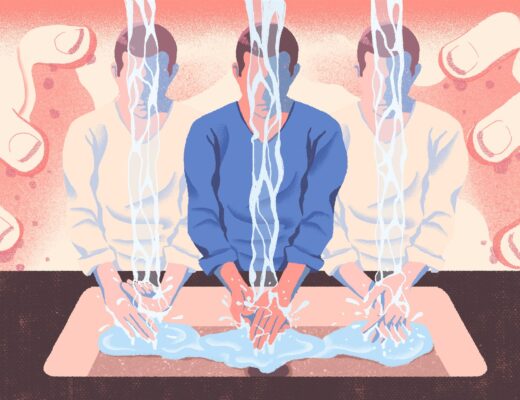We come across different situations in life that make us feel anxious. A student might feel anxious when he/she faces exam, a young musician might have anxiety when he gives a performance in front of a large crowd, a child may be anxious when facing a stranger. Anxiety is all around us.
We may be strong but anxiety doesn’t spare anyone. It is a normal human response to any stressful situation and when performance is required. However, all of us do not have an anxiety disorder. For a person to have anxiety disorder he should have a cluster of symptoms of anxiety for a certain duration and must have dysfunction due to the condition.
The symptoms of anxiety include palpitations or pounding heart, or accelerated heart rate, sweating, trembling or shaking, numbness or tingling, a sensation of shortness of breath, feeling of choking sensation, chest pain or discomfort. A person might also feel nauseous with abdominal discomfort, dizzy, unsteady lightheaded or may even faint. He/ she is fearful without any threat.
The most common fear of anxiety is the fear of losing control or going crazy. The person may also have a fear of dying or having a serious illness. Apart from these the person becomes overly concerned with everyday matters and may also have non-specific persistent fear and worry. This might lead to a person having restlessness, fatigue, concentration problems, irritability, muscle tension, and sleep disturbance. These symptoms can be overwhelming and disabling when it occurs for a considerable period of time.
WHO reports that anxiety disorders are the most common mental disorders worldwide. The research in different parts of the world have shown up to 33.7% of the population are affected by an anxiety disorder during their lifetime. This means one-third of the population is affected by an anxiety disorder during their lifetime in a certain place. They are more common in women, especially during their midlife.
Anyone can have anxiety irrespective of life stressors, occupation, financial status or education. It is not a sign of weakness or taking too much pressure. Anxiety is a result of an imbalance in neurochemicals of the brain namely serotonin and noradrenaline. Certain life events or stressors might increase the vulnerability of these neurochemical changes. However, it would not be correct to say stress or adverse life events lead to anxiety. The simple logic is that all of us go through stressful condition yet all of us do not have an anxiety disorder. Hence, a simple cause-effect relation doesn’t apply to this disorder.
In the context of Nepal, we see that the patient with anxiety visiting cardiology and emergency department most of the time due to palpitation, choking sensation and fear that they are going to die. It is advisable to seek help from a psychiatrist if the initial screening comes out to be normal. When a person has symptoms of anxiety he should seek help as the disorder is treatable in almost all the cases.
Treatment for Anxiety
Anxiety is best treated with anti-anxiety medications. Psychological interventions might be helpful mostly as an adjuvant to medications. Apart from this, few lifestyle changes like exercise, regularizing sleep patterns, breathing exercises, reducing caffeine (coffee, energy drinks, red bull) intake, and stopping smoking could be beneficial to a person with anxiety.
To conclude, anxiety disorder is associated with a considerable degree of impairment, high health-care utilization and an enormous economic burden for society. Although effective psychological and pharmacological treatments exist for anxiety disorders, many affected individuals do not contact a psychiatrist for treatment, and of those who utilize these services, a high percentage is not diagnosed correctly or not offered the best treatment. It should be always kept in mind that anxiety disorder is like any other disease and visiting a psychiatrist or seeking help is not a sign of weakness or embarrassment.



One Reply to “Anxiety : Basics of Anxiety”